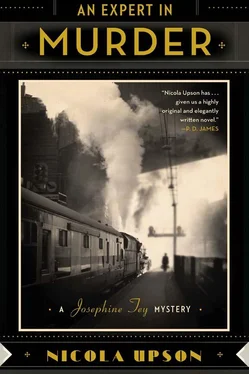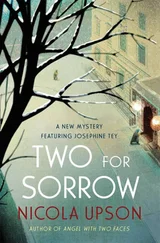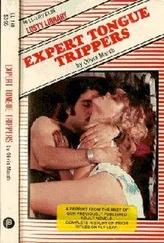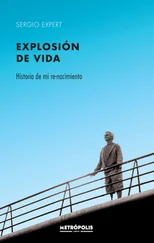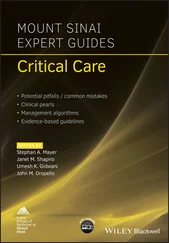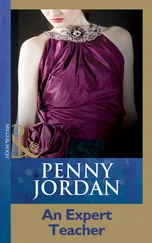Nicola Upson - An Expert in Murder
Здесь есть возможность читать онлайн «Nicola Upson - An Expert in Murder» весь текст электронной книги совершенно бесплатно (целиком полную версию без сокращений). В некоторых случаях можно слушать аудио, скачать через торрент в формате fb2 и присутствует краткое содержание. Жанр: Старинная литература, на английском языке. Описание произведения, (предисловие) а так же отзывы посетителей доступны на портале библиотеки ЛибКат.
- Название:An Expert in Murder
- Автор:
- Жанр:
- Год:неизвестен
- ISBN:нет данных
- Рейтинг книги:3 / 5. Голосов: 1
-
Избранное:Добавить в избранное
- Отзывы:
-
Ваша оценка:
- 60
- 1
- 2
- 3
- 4
- 5
An Expert in Murder: краткое содержание, описание и аннотация
Предлагаем к чтению аннотацию, описание, краткое содержание или предисловие (зависит от того, что написал сам автор книги «An Expert in Murder»). Если вы не нашли необходимую информацию о книге — напишите в комментариях, мы постараемся отыскать её.
An Expert in Murder — читать онлайн бесплатно полную книгу (весь текст) целиком
Ниже представлен текст книги, разбитый по страницам. Система сохранения места последней прочитанной страницы, позволяет с удобством читать онлайн бесплатно книгу «An Expert in Murder», без необходимости каждый раз заново искать на чём Вы остановились. Поставьте закладку, и сможете в любой момент перейти на страницу, на которой закончили чтение.
Интервал:
Закладка:
had always amused him. Today, it felt more like a curse.
His mood lifted briefly the minute he set foot on Westminster Bridge. He was by no means a fan of Romantic poetry, but he was willing to settle his differences with Wordsworth and concede that the earth had nothing fairer to show than this stretch of the river.
It had, of course, changed considerably since those words were written, but its beauty had not diminished: the view of the Houses of Parliament and Victoria Tower, with the majestic sweep of buildings which now lined Millbank as far as Lambeth Bridge, was truly splendid. Turning to look down-river, he admired in a different way the tall, grey outline of Victoria Embankment, dominated by a startling new clock tower and punctuated by the Savoy’s reassuring civility. His gaze fell on Somerset House in the background, and he was reminded that he really must track down the information he needed. The matter was becoming urgent.
As he stood there, Aubrey noticed how many people slowed their steps to appreciate the view. One young couple in particular drew his attention. They stood close together, holding hands under the cover of their coats and clinging on to an old umbrella as they 53
leaned over the edge to stare intently into the waters below. They spoke little, but when they did it was of hopes for the future; small things, perhaps, but the joy with which they looked forward to a life of intimacy was so unlike anything Aubrey had ever known that he felt the contrast physically, as a rebuke, and wanted that ordinary miracle so badly that he had to look away. His own marriage had never been the shared adventure of discovery that he had hoped for; neither had he and his wife settled into the easy companionship of middle age which often compensated for the boredom of earlier years. Left at home while he went to war or to work, she had had plenty of time to wonder why they were married, although she was far too well mannered ever to have asked the question aloud. Perhaps she hated to be wrong or was simply afraid of having to acknowledge that he was lonely too. Either way, the moment for second chances was gone, and a sense of waste had hovered between them for years. Worst of all, it seemed to have tainted the next generation. As far as he could tell from their sporadic and awkward communications, his son’s marriage was no more fulfilling than his own.
Maybe it was the gloom of the winter months, but he was frequently overwhelmed now by the feeling that his life had finally caught up with him, that the darkness which he had held at bay with the colour of stage artifice had, through that very medium, begun to return. This time, he sensed, the darkness would not be denied. Regret had long been the emotion with which he was best acquainted, but recently he had felt more than that: recently, he had felt afraid. How much of that fear was of his own making he was reluctant to admit but deep down he knew that he had risked too much, that the end could not always justify the means. In those tunnels he had seen damnation too often in the faces of others not to recognise it instantly when it stared back at him from the mirror.
He could stand the cold no longer, so retraced his footsteps along Bridge Street and turned into Parliament Street and Whitehall, where the morning was moving leisurely towards noon.
Before him, in the centre of the road and at the heart of a country’s grief, stood Lutyens’s extraordinary monument to the dead –
54
quiet, dominant and bearing witness to the greatest emotion that England had ever felt. It was fifteen years and more since the last shot was fired – long enough for the memory to become lazy – but cars still slowed as they passed, men on buses continued to bare their heads, and parents brought their children to stand quietly at the monument’s flower-covered foot, transferring a muted sorrow to the next generation. Forgetting for a moment his worries about the future, Aubrey took the deep purple iris from the inside of his raincoat and placed it gently on the steps, removing the dying flower that he had left there a week before. After a minute or two’s reflection, he moved purposefully off towards the thin, dark figure of Nelson’s Column.
London could be hard on the lonely, thought Esme McCracken as she sat at her window and looked down into the square below.
Thank God she had never been susceptible to the pointless melan-choly that a solitary existence so often tried to justify. If she were, she would scarcely have lasted long in this run-down, worn-out hole, where the inhabitants of the other rooms seemed to have given up on life at roughly the same time as the wallpaper. At night, when she eventually climbed the narrow stairs to the third floor and crawled into an uninviting single bed, she lay awake until the early hours, attempting to restore its faded pattern in her mind’s eye as an antidote to the scenes and conversations that raced in her head and warded off sleep. It was the only time she really paid any attention to her surroundings: the sparseness of the room, the deficiencies of the furniture – a sagging armchair, put under further stress by piles of newspapers and books, and an ugly, fourth-hand table, scratched beyond the endeavours of any polish – never bothered her. Why should they? She had her eye and her thoughts trained firmly on the future.
It was the cold that she most resented, bitter and raw at this time of year. The bars on her small electric fire, inadequate at the best of times, had not glowed for many days now, as every spare penny she earned was spent on words rather than heat. Each morning, on her way to work at the New Theatre, she would steal 55
into the second-hand bookshops to pore greedily over the shelves of new arrivals. Sometimes she was lucky, and managed to slide a slim volume of Ibsen or Chekhov under her coat while the shop assistant’s attention was taken by another customer. Reading the book later, as she sat at prompt corner, she felt no remorse over such small acts of theft, knowing herself to be a worthy recipient of the ideas contained in those pages. Better that they should fall into her hands than be wasted on people with full pockets but empty minds, or left, forgotten, to gather dust.
People seemed determined to shelter from life these days, she thought, to resist its joys and its pain in favour of a bland contentment. There was certainly no place in the West End for any play with a soul. She despised the romantic nonsense that everyone seemed so taken with. If she were only given the chance, she knew she could make them understand what they were missing. But, as things stood, Daviot – and others like her – sat smugly in the auditorium, revelling in a success which was undeserved and planning another pointless fairy-tale to sedate the crowds, while she was taken for granted backstage, working long hours just to ensure that fame ran smoothly.
The harsh roar of a motorcycle cut through the air beneath her window as she got up to switch on the light. The gloom of the morning made the bulb’s efforts to illuminate the room less feeble than usual, but there was still precious little cheer to be had.
Shivering, she took the blanket off the bed and draped it round her shoulders before picking her way across a carpet of discarded paper and returning to the battered trunk that functioned as a makeshift desk. Her typewriter – a Good Companion, bought for twelve precious guineas – looked out of place in that tawdry room, but it was more real to her than anything else there and it had served her well: she was finally ready. Looking up from the page, she smiled bitterly at the sight of Bernard Aubrey, strolling into view as if in response to one of her perfectly timed cues. It amused her to think that he should take the trouble to notice her here, in this anonymous room, when at the theatre he passed her every day without even bothering to remember her name. It had always 56
Читать дальшеИнтервал:
Закладка:
Похожие книги на «An Expert in Murder»
Представляем Вашему вниманию похожие книги на «An Expert in Murder» списком для выбора. Мы отобрали схожую по названию и смыслу литературу в надежде предоставить читателям больше вариантов отыскать новые, интересные, ещё непрочитанные произведения.
Обсуждение, отзывы о книге «An Expert in Murder» и просто собственные мнения читателей. Оставьте ваши комментарии, напишите, что Вы думаете о произведении, его смысле или главных героях. Укажите что конкретно понравилось, а что нет, и почему Вы так считаете.
